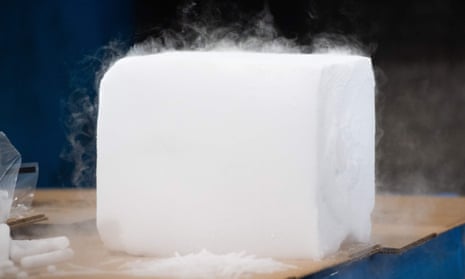Food and drink makers have cautiously welcomed a deal that will secure UK production of carbon dioxide, which is used in making meat, beer, baked goods and fizzy drinks, for at least three months.
Meat processors, brewers, bakers and soft drink producers all use CO2 in making and packaging their goods. It is also required for the humane slaughter of animals including pigs and chickens, and is used by hospitals and nuclear power plants.
A short government statement said the new industry-led deal would enable CF Fertiliser plant in Billingham, County Durham, to continue to operate.
The plant was scheduled for potential shutdown this week after a three-month emergency deal brokered by the government came to an end on Monday.
That deal was prompted by a crisis in CO2 supplies in late September as high energy prices combined with annual maintenance shutdowns to bring UK production to a near halt.
The government was forced to use taxpayer money to fund a three-week bailout for CF Industries, which accounts for 60% of the UK’s CO2 supplies, to stave off supply chain chaos before the first three-month deal was agreed. It said it would not put up further funds.
Kate Halliwell, the chief scientific officer at the Food and Drink Federation trade body, which represents hundreds of UK food and drink businesses, said: “UK food and drink manufacturers welcome the deal that will ensure continuity of CO2 supply, keeping our shops, pubs and restaurants stocked with our favourite food and drink.”
But industry insiders said there were concerns about what the new industry deal would mean for the cost of CO2, which has risen sharply in the light of soaring energy prices.
Emma McClarkin, the chief executive of the British Beer and Pub Association, said: “We are encouraged by the agreement made between suppliers and CF industries, however we urgently need further details on the nature of the arrangement in order to understand the impact on our sector and the longer term sustainability of CO2 supply for the UK drinks sector.
“Our sector is still reeling from the impact of a devastating winter and face rising cost pressures from all angles. A swift resolution to the CO2 supply issue is crucial in ensuring a strong and sustainable recovery for the beer and pub sector.”
The business department said in a statement: “The government welcomes the industry’s agreement which is in the best interest of businesses.”
It added that in the longer term the government would “like to see the market take measures to improve resilience, and we are engaging on ways this could happen”.










